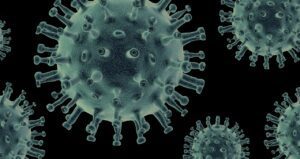Nipah Virus
What is Nipah virus?
Nipah virus is a viral infection that can affect both humans and animals. There have only been a few reported outbreaks in Asia. In severe cases people experience acute respiratory illness and fatal encephalitis.
What are the symptoms of Nipah virus?
Some people do not experience symptoms when infected with this virus, while others see a range of mild to severe effects.
The first symptoms that appear are headaches, muscle pain, fevers, sore throat, and vomiting. As the virus progresses, symptoms evolve into drowsiness, dizziness, altered consciousness, and neurological symptoms associated with acute encephalitis. Respiratory problems may also occur, such as atypical pneumonia and acute respiratory distress. In extremely severe cases, people see seizures and encephalitis, which can lead to comas and death.
What causes Nipah virus?
This virus is typically transmitted by contact with the secretions or tissue of an infected human or animal. Fruit bats and pigs are two of the animals that have been linked to outbreaks. Human-to-human transmission typically occurs between the infected and those caring for them.
How is Nipah virus diagnosed?
A diagnosis is typically difficult to obtain in the earlier stages, as the initial symptoms are similar to many other conditions. It is best to diagnose this virus during the earlier stages, and doctors do so through tests like real time polymerase chain reactions and antibody detection via enzyme-linked immunosorbent assay.
What are the treatments for Nipah virus?
There is no vaccine or treatment specific to Nipah virus. Treatment is symptomatic and focuses on avoiding and quickly treating complications.
Where can I find out more about Nipah virus?
Nipah Virus Articles

People in Bangladesh Warned Against Raw Date Juice to Protect from Nipah Virus

Phase 1 Trial Will Evaluate mRNA-1215 Vaccine for Nipah Virus




